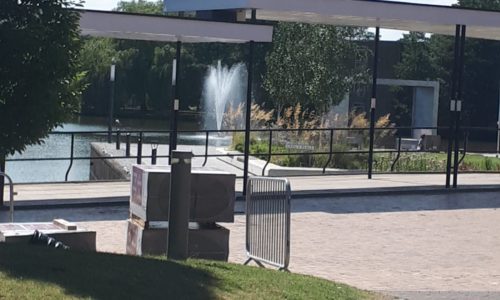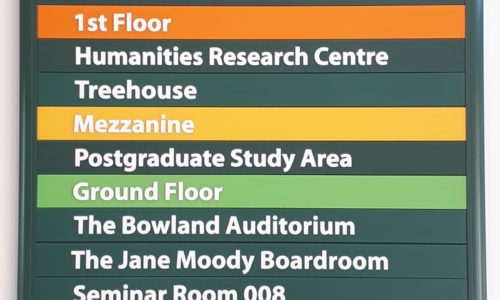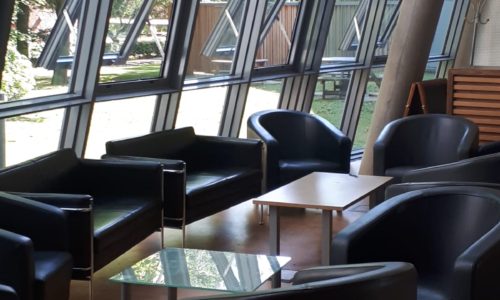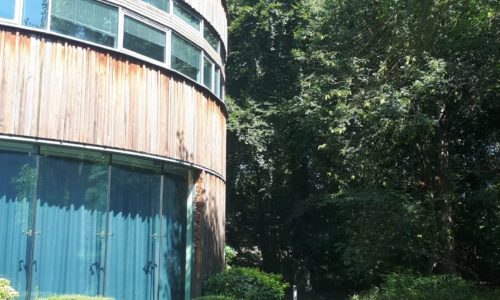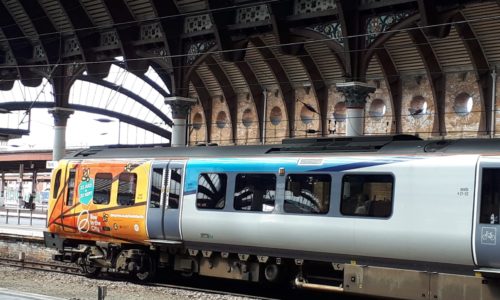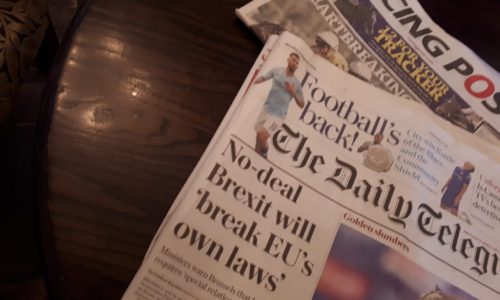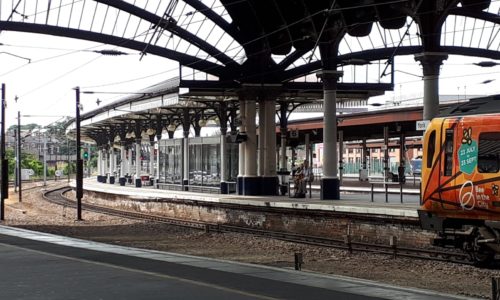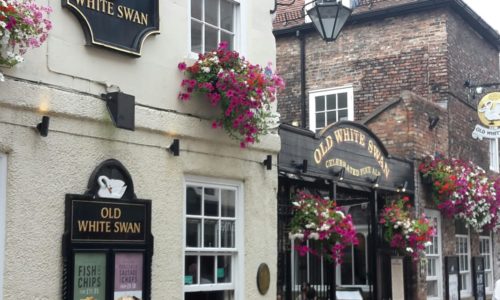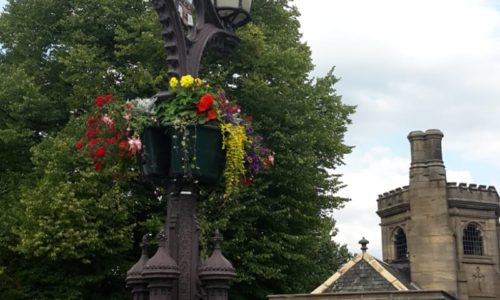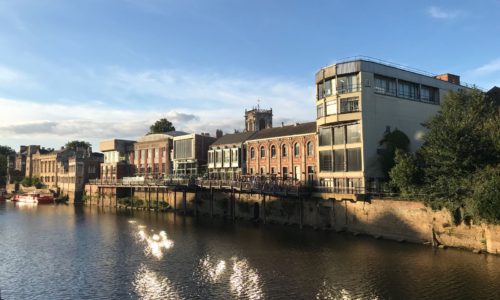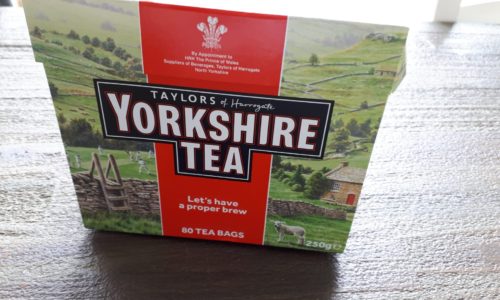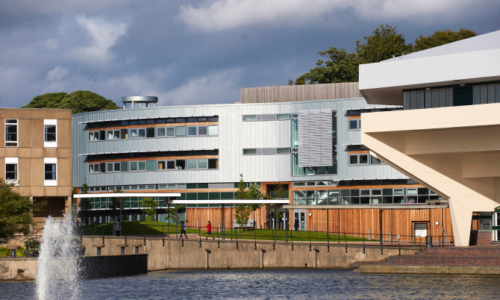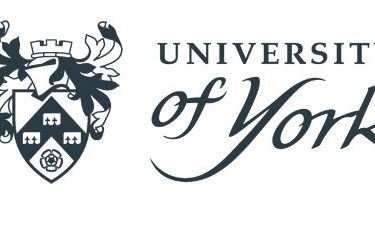Emerging Scholars’ Day
Guest Speakers
Professor Peter French, University of York and J P French Associates, United Kingdom
 Bio: Professor French is one of the world’s leading forensic speech and acoustic experts. With more than 30 years experience in forensic speech science (FSS) analysis, he is one of the founding members and the President of the International Associaton for Forensic Phonetics an Acoustics (IAFPA). In addition, he serves as an editor for the International Journal of Speech, Language and the Law. Since 1989, he has served as the Chair of an international consulting firm, J.P. French Associates Forensic Speech & Acoustics Laboratory in York, England. He is also a Professor of Forensic Speech Science at the University of York.
Bio: Professor French is one of the world’s leading forensic speech and acoustic experts. With more than 30 years experience in forensic speech science (FSS) analysis, he is one of the founding members and the President of the International Associaton for Forensic Phonetics an Acoustics (IAFPA). In addition, he serves as an editor for the International Journal of Speech, Language and the Law. Since 1989, he has served as the Chair of an international consulting firm, J.P. French Associates Forensic Speech & Acoustics Laboratory in York, England. He is also a Professor of Forensic Speech Science at the University of York.
Abstract: There’s No Such Thing as Forensic Phonetics
The paper argues that since the entry of forensic speaker comparison evidence into UK courts in 1967 the area that has become known as forensic phonetics (or, more lately, forensic speech science) has created almost no analytic methods that it can uniquely call its own. Instead, what we have seen throughout the 50 years of its growth is a gradual accretion of procedures and methodologies developed largely within mainstream phonetics and acoustic engineering to form the test battery now used by the majority of forensic phoneticians in the UK and worldwide. Rather than regarding this as a weakness, however, it is to be seen positively. Recent government requirements for the validation of forensic methodologies can at least in part be met by demonstrating the established nature and successful track record of the procedures used by forensic phoneticians within the parent disciplines from which they originated. The paper provides exemplification of these points by reference to the history and provenance of the contents of the ‘toolkit’ of the forensic phonetician.
Dr. Christin Kirchhübel, J P French Associates, United Kingdom
 Bio: Dr. Kirchhübel has been a forensic consultant at J P French Associates since 2011. Her work there has involved in more than three hundred cases and has included a range of high-profile international proceedings. She carries out research into the acoustic and temporal characteristics of deceptive speech and how to detect suspicious behaviour using speech. She is a member of the International Association for Forensic Phonetics and Acoustics (IAFPA) and is the editor for PhD abstracts for the International Journal of Speech Language & the Law. She regularly provides evidence as an expert witness in court in the areas of forensic speaker comparison, transcription and disputed utterance analysis.
Bio: Dr. Kirchhübel has been a forensic consultant at J P French Associates since 2011. Her work there has involved in more than three hundred cases and has included a range of high-profile international proceedings. She carries out research into the acoustic and temporal characteristics of deceptive speech and how to detect suspicious behaviour using speech. She is a member of the International Association for Forensic Phonetics and Acoustics (IAFPA) and is the editor for PhD abstracts for the International Journal of Speech Language & the Law. She regularly provides evidence as an expert witness in court in the areas of forensic speaker comparison, transcription and disputed utterance analysis.
Abstract: Working as a Forensic Speech Consultant
My background is in academia. I followed the academic path from undergraduate to masters to doctorate. A necessary part of that academic progression involved specialisation —the area I chose was forensic phonetics. I was taught by leaders within the field. I had access to all the resources a student of forensic phonetics would wish to have access to. I was even able to gain work experience —a rare opportunity. I was equipped with all the tools I needed when I started my full-time position as a consultant carrying out forensic casework. Well, not quite. Undoubtedly, a strong background in phonetics, linguistics, and acoustics is the most essential ingredient in order to carry out forensic casework. However, in order to really understand and identify with your role as a forensic speech consultant, just being a speech scientist is not enough. You have to be a good communicator, written and oral. The majority of the time you will be liaising with people who have no knowledge of forensic phonetics, who are not academics. If you are an independent practitioner (sole or as part of a company), you are essentially running a business. Often you will have to work under pressure as deadlines have to be met. You may be required to change personal plans at the last minute in order to comply with court. Perhaps the most challenging part of it all is the understanding that your work is only a small puzzle in the bigger picture which is the criminal justice system. Forensic casework is not the final stage of your academic career. It is the beginning of a new career.
Dr. Samuel Larner, Manchester Metropolitan University, United Kingdom
 Bio: Dr. Larner is a Senior Lecturer in Forensic Linguistics at the Manchester Metropolitan University, UK, where is also Co-head of the Centre for Applied Pragmatics and Forensic Linguistics, and a member of the Manchester Centre for Youth Studies. His key publications to date have focussed primarily on the theory and practice of forensic authorship analysis, and in particular have outlined corpus-based approaches to the identification of formulaic sequences, and the relationship between formulaic sequences and idiolect. An additional area of interest is in forensic linguistic approaches to deception detection, and particularly in exploring formulaic sequences as a potential cue to deception.
Bio: Dr. Larner is a Senior Lecturer in Forensic Linguistics at the Manchester Metropolitan University, UK, where is also Co-head of the Centre for Applied Pragmatics and Forensic Linguistics, and a member of the Manchester Centre for Youth Studies. His key publications to date have focussed primarily on the theory and practice of forensic authorship analysis, and in particular have outlined corpus-based approaches to the identification of formulaic sequences, and the relationship between formulaic sequences and idiolect. An additional area of interest is in forensic linguistic approaches to deception detection, and particularly in exploring formulaic sequences as a potential cue to deception.
Abstract: How Children and Young People Disclose Sexual Abuse: A Linguistic Analysis of NSPCC ChildLine online Chat Transcripts
Research indicates that when children and young people make the difficult decision to disclose that they have been sexually abused, their linguistic capabilities may limit the extent to which they can make a full and clear disclosure (Allnock and Miller, 2013). This may be problematic from a safeguarding perspective since the recipient of the disclosure may not realize or fully appreciate what the child or young person is trying to disclose, or even that an attempt at disclosure is being made. Whilst the process of, and barriers to, disclosure have been extensively researched, the linguistic strategies used to communicate disclosure have received relatively little attention. This research therefore attempts to address this gap by asking: ‘In what ways do children and young people disclose sexual abuse?’ To answer this question, 47 transcripts from online chat sessions between children and young people (aged 10—18) and volunteer ChildLine counsellors were analysed. The findings highlight the role of the counsellor in eliciting the disclosure, and in framing it as sexual abuse, which raises questions about how disclosures are made in other contexts and whether institutional safeguarding policies are fit for purpose.
Dr. Tina Cambier-Langeveld, Dutch Immigration and Naturalisation Service, The Netherlands
Bio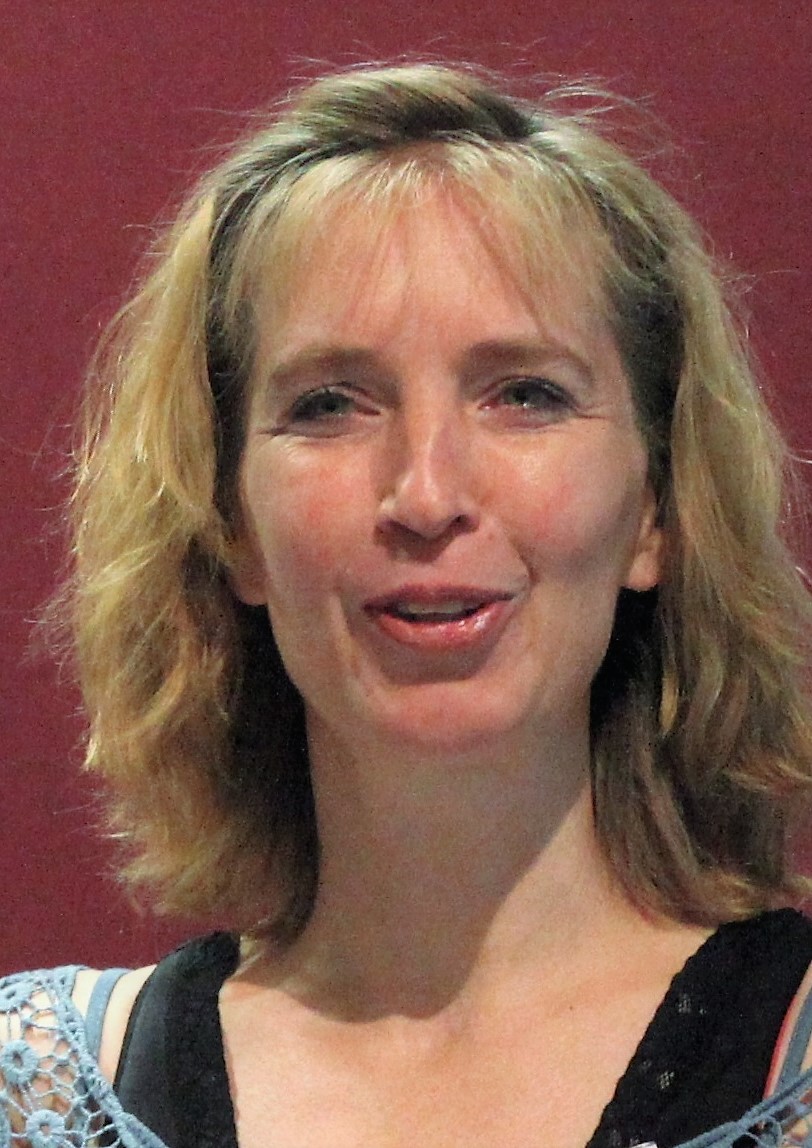 : Tina Cambier-Langeveld holds a PhD in phonetics. She is a forensic phonetician with extensive experience in forensic casework of various types (1999-present). Her focus is on empirical investigation of methodologies in forensic speaker comparison and language analysis in the asylum procedure. She started in forensics and was trained to become an expert in forensic casework at the Netherlands Forensic Institute (NFI). At present she is employed by the Dutch Immigration and Naturalisation Service, where she holds the position of senior linguist and is in charge of language analyses as a means of investigating the claims of asylum seekers on their national/regional origin, ethnicity and language background. She also works as a forensic speech scientist and consultant for the speech and audio group at the NFI. In addition, she is a lecturer at Leiden University, where she teaches an MA course on forensic speech science. She is honorary chair of the International Association for Forensic Phonetics and Acoustics (2011-present).
: Tina Cambier-Langeveld holds a PhD in phonetics. She is a forensic phonetician with extensive experience in forensic casework of various types (1999-present). Her focus is on empirical investigation of methodologies in forensic speaker comparison and language analysis in the asylum procedure. She started in forensics and was trained to become an expert in forensic casework at the Netherlands Forensic Institute (NFI). At present she is employed by the Dutch Immigration and Naturalisation Service, where she holds the position of senior linguist and is in charge of language analyses as a means of investigating the claims of asylum seekers on their national/regional origin, ethnicity and language background. She also works as a forensic speech scientist and consultant for the speech and audio group at the NFI. In addition, she is a lecturer at Leiden University, where she teaches an MA course on forensic speech science. She is honorary chair of the International Association for Forensic Phonetics and Acoustics (2011-present).
Abstract: Forensic Casework Considering the Context
Knowledge of domain-irrelevant context information can cause bias, which may influence the judgment of experts in forensic casework. Recently, procedures to minimize the effects of bias have been developed and implemented, such as context information management and blind evidence line-ups. Fields in which subjective judgment and interpretation by the human observer are the primary way of reaching a conclusion are particularly susceptible to bias effects. As I will discuss during my talk, the field of forensic linguistics/phonetics is certainly not free of unwanted effects of bias. However, my primary aim will be to counterbalance the attention given to the negative effects of context information. This talk will highlight the need for experts performing forensic casework to be aware of certain aspects of the context that are of critical importance to their work. Linguists will understand that a forensic expert working on language samples (be it spoken or written) must take into account the context within which these samples were produced. In addition, it will be argued that a forensic expert needs to be aware of the forensic context within which his/her expert opinion is called upon, since this context may not only affect the question to be addressed, but also influences the way in which the expert opinion is in the legal decision to be made. Various aspects of what could be called ‘forensic awareness’ will be discussed.
Dr. I. M. Nick, GSFL President
 Bio: holds a PhD in English Linguistics; an MA in German Linguistics; an MSc in Forensic and Investigative Psychology; BA in German Language and Literature, and a BSc in Clinical and Social Psychology. In the Summer of 2010, she was also awarded the German post-doctoral degree, the ‘Habilitation’, for her research in English Sociolinguistics. In Forensic Linguistics, her areas of interest include criminal aliases, suicide letter analysis, and language policy and planning. Aside from her teaching duties, she also regularly serves as a journal editor and reviewer. From 2014 to 2016, she was the elected Chair of the Committee for Ethnic Diversity in Linguistics (CEDL) for the Linguistic Society of America. She is currently the President of the American Name Society (ANS) as well as the Co-founder and President of the Germanic Society for Forensic Linguistics (GSFL).
Bio: holds a PhD in English Linguistics; an MA in German Linguistics; an MSc in Forensic and Investigative Psychology; BA in German Language and Literature, and a BSc in Clinical and Social Psychology. In the Summer of 2010, she was also awarded the German post-doctoral degree, the ‘Habilitation’, for her research in English Sociolinguistics. In Forensic Linguistics, her areas of interest include criminal aliases, suicide letter analysis, and language policy and planning. Aside from her teaching duties, she also regularly serves as a journal editor and reviewer. From 2014 to 2016, she was the elected Chair of the Committee for Ethnic Diversity in Linguistics (CEDL) for the Linguistic Society of America. She is currently the President of the American Name Society (ANS) as well as the Co-founder and President of the Germanic Society for Forensic Linguistics (GSFL).
Abstract: Let’s Talk About Stress
According to the World Health Organization, occupational stress is facilitated by the following factors: time pressure, unpredictable work hours, financial insecurity, responsibility for co-workers, and isolated or solitary work. If left unchecked, this combination of stressors can produce physiological, cognitive, psychological, and social consequences for employees. The bad news is all of these factors are commonplace within modern academia. The good news is that science has identified many strategies that may be employed to effectively manage stress in the workplace. In this interactive session, we will discuss how to measure and manage the unique stressors attached with traditional tasks in academia— from studying, teaching, researching, consulting, publishing, and mentoring. In addition, attention will be given to navigating the bi-directional stressors that may come from the unusual interpersonal relationships that can be found in academia (e.g. student to teacher; assistant to supervisor; mentor and mentee; colleague to colleague). Although the basis of this session will be empirical findings, the format will be highly interactional.
Dr. Maggie O’Shaughnessy, Forensic Linguistics Program at Hofstra University, The United States
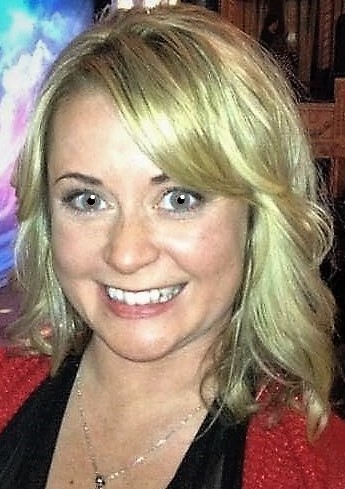 Bio: Dr. O’Shaughnessy is an adjunct professor of linguistics at Hofstra University. She teaches dialectology and sociolinguistic data collection. Her research interests include analyzing discourse as it pertains to criminal justice and court proceedings, as well as multiculturalism and linguistic diversity.
Bio: Dr. O’Shaughnessy is an adjunct professor of linguistics at Hofstra University. She teaches dialectology and sociolinguistic data collection. Her research interests include analyzing discourse as it pertains to criminal justice and court proceedings, as well as multiculturalism and linguistic diversity.
Abstract: Eliciting Confessions Using the Language of Power and Control: Critical Discourse Analysis of a Police Interview
Confessions are the heaviest piece of evidence against a defendant throughout his or her trial and conviction process and therefore, they are highly sought after in the interrogation stage. Alarmingly, one in four people wrongfully convicted of a crime and exonerated by DNA evidence gave a false confession or made a self-incriminating statement to police (innocenceproject.org 2013). This study addresses how discursive power is manipulated and controlled through language during a police interview in order to elicit a confession. Using Critical Discourse Analysis, I will examine how law enforcement officers utilize the speech event setting, conversational turn-taking strategies, interruptions, and sometimes leading questions or statements to elicit confessions from interview subjects. The police interrogations being analyzed are the video-taped interview of a nineteen-year-old female murder suspect Rachel Wade, the confession of Brendan Dassey of Netflix’s “Making a Murderer” (2015) notoriety, and the interrogation of Steven Linscott, aka “The Dream Murderer” who was wrongfully convicted in 1982. The results have implications for improved methods of interrogation in order to avoid false confessions.
Dr. Isabel Picornell, QED Forensic Linguistics
Bio: Dr. Picornell is principal of QED Forensic Linguistics Ltd, providing forensic linguistic services to the professional intelligence and investigation industry. The primary foci of QED are Authorship Attribution and Characterization as well as Deception Analysis. She holds a PhD in forensic linguistics from Aston University (UK) and specializes in deceptive linguistic strategies in witness statements. She is a member of the International Association of Forensic Linguists and a Certified Fraud Examiners.
Dr. Picornell is principal of QED Forensic Linguistics Ltd, providing forensic linguistic services to the professional intelligence and investigation industry. The primary foci of QED are Authorship Attribution and Characterization as well as Deception Analysis. She holds a PhD in forensic linguistics from Aston University (UK) and specializes in deceptive linguistic strategies in witness statements. She is a member of the International Association of Forensic Linguists and a Certified Fraud Examiners.
Abstract: From Concept to Completion: Building a Successful FL Consultancy
Generally, few people are aware of the existence of forensic linguistics, so much so that current availability for full-time employment in the field outside of academia are few and far between. However, as companies increasingly outsource specialist work and knowledge of forensic linguistics spreads in the wider world, there are opportunities for those interested in setting up a forensic linguistic consultancy. The attraction of being an independent consultant are myriad – the flexibility, you are your own boss and free to choose, accept, or refuse work, and you set your own rates. However, you also say goodbye to the predictability and routine of a regular job, the safety of a monthly income, the support of your work colleagues, and your clients often dictate your working hours. The life of an independent consultant can be intensely lonely, but for those prepared to take the plunge, it can also be extremely rewarding. This session will look at the opportunities and pitfalls of becoming a forensic linguistic consultant as a career choice. It will address issues such as company incorporation (or not) and client focus, how to build a reputation and nurture a network, manage your workload and keep your skills current and, above all, keep your sanity.
Dr. Grace Sullivan Buker, Georgetown University, The United States
 Bio: Grace Sullivan completed her doctorate in Linguistics at Georgetown University in Washington, D.C.. Her dissertation focused on the use of African American English and treatment of AAE speakers in the courtroom, specifically the trial of George Zimmerman for the murder of Trayvon Martin. Grace’s research interests also include forensic linguistic threat assessment, deception detection, and forensic speech science. Grace applies her theoretical linguistics background, which include minimalist syntax and phonetics and phonology, and the approaches of discourse analysis and interactional sociolinguistics to her forensic linguistics analyses. She is an adjunct lecturer in the Department of Linguistics at Georgetown University.
Bio: Grace Sullivan completed her doctorate in Linguistics at Georgetown University in Washington, D.C.. Her dissertation focused on the use of African American English and treatment of AAE speakers in the courtroom, specifically the trial of George Zimmerman for the murder of Trayvon Martin. Grace’s research interests also include forensic linguistic threat assessment, deception detection, and forensic speech science. Grace applies her theoretical linguistics background, which include minimalist syntax and phonetics and phonology, and the approaches of discourse analysis and interactional sociolinguistics to her forensic linguistics analyses. She is an adjunct lecturer in the Department of Linguistics at Georgetown University.
Abstract 1: Race and Perceived “Nonstandardness” in the Courtroom
There have been numerous cases in the United States and around the world in which lay people involved in courtroom proceedings are treated unfairly by the opposing side’s attorney as a result of their vernacular dialect (Gumperz, 1982b; Wodak-Engel, 1984; Eades, 2004; Rickford and King, 2016). In this paper, I will be introducing aspects of courtroom proceedings where the adversarial participants are not the only individuals responsible for unfair treatment of laypeople of the courtroom (Sullivan, 2017). In particular, I will discuss how witness testimony may be undermined by the practices of the court reporter, who is tasked with creating a “verbatim” account of what was said during the trial and is not explicitly involved in the adversarial process. In introducing this literature, students will discuss these issues as they relate to their own home countries and how we can improve the perceptions of nonstandard language varieties in the courtroom.
Abstract 2: Workshop on Authorship Attribution: Henry L. Mencken 1951 and the Eastern District of Louisiana
In August 2011, an anonymous person began posting defamatory comments about Federal Judge for the US District Court for the Eastern District of Louisiana Frederick R. Heebe on a New Orleans, Louisiana newspaper, the Times-Picayune, website under the pseudonym “Henry L. Mencken1951” (henceforth Mencken). The comments in question comprised approximately 600 entries over a sequence of six months (August, 2011 to February, 2012). These comments were considered to be in violation of Heebe’s civil rights and did not conform to the professional and ethical standards of the Louisiana Bar Association. As a result, former FBI Profiler and Forensic Linguist James R. Fitzgerald was presented this case by the law firm Williams & Connolly, LLP and conducted an authorship attribution analysis of the documents provided by the attorneys. The documents included the compiled list of nearly 600 entries by Mencken, henceforth referred to as the Q-document, and a document of known authorship, a nine-page pretrial motion filed with the US District Court of Louisiana, henceforth K-document. The K-document was co-signed by four attorneys. In this workshop, we will evaluate components of the Q-documents in relation to the K-documents and compare our findings to those of Fitzgerald.
Dr. Dominic Watt, University of York, United Kingdom
 Bio: Dr. Watt is a senior lecturer in Forensic Speech Science at York University’s Department of Language and Linguistic Science. He holds a MA (Hons) from Edinburgh and a PhD from Newcastle. His areas of specialization with Forensic Phonetics include sociophonetics, language and identity studies, dialectology, and speech perception. One of his most recent research projects involve the investigation of the use and utility of localized speech forms in determining identity.
Bio: Dr. Watt is a senior lecturer in Forensic Speech Science at York University’s Department of Language and Linguistic Science. He holds a MA (Hons) from Edinburgh and a PhD from Newcastle. His areas of specialization with Forensic Phonetics include sociophonetics, language and identity studies, dialectology, and speech perception. One of his most recent research projects involve the investigation of the use and utility of localized speech forms in determining identity.
Abstract: Where are the Edges of our Field? The Role of Emerging Scholars in Bending, Breaking and Redrawing Disciplinary Boundaries
Emerging scholars in forensic linguistics or forensic phonetics and acoustics (henceforth FLAPA) are increasingly subject to pressures that were of lesser concern to previous generations of researchers and practitioners. As our disciplines have matured and become more familiar to outside audiences, the expectations of research funders and the end-users of our consultancy services have risen. On the one hand, the universities and the funders place a high value on the interdisciplinarity, internationalisation and impact of our research, in addition to the requirements that it be original, timely and relevant. On the other, the bar has been raised considerably by the judiciary and by the bodies responsible for the regulation of the forensic sciences (e.g. the UK Forensic Science Regulator’s Office) in respect of factors such as objectivity, replicability, standardisation of methods, and the legal and statistical validity of the logical framework within which the work is carried out. A PhD and ideally also some casework experience is now more or less a requirement for anyone seeking a career in FLAPA. Getting a foot on the ladder is, in short, an appreciably tougher ask than it once was.
Manee Withöft, FTS Forensische Text- und Schriftanalysen GmbH
 Bio: After obtaining a BA in English studies, Manee completed a Postgraduate Program during her Master studies, and studied FL at Aston University in Birmingham, England. She recently obtained her MA degree in Linguistics from the Heinrich-Heine-University in Düsseldorf, with a specialization in FL. Her interest in FL is authorship attribution. Her MA thesis dealt with attributing authorship in instant messaging. She currently works for the “FTS Forensische Text- und Schriftanalysen GmbH” as a freelancer expert. Her work there concerns investigations involving questioned identities. A native speaker of Russian and German, she speaks five languages. In the near future, she will begin work with the Criminal Investigation Office in Germany. In addition to her FL work, she teaches Russian at the VHS (Community College) in Düsseldorf, Germany.
Bio: After obtaining a BA in English studies, Manee completed a Postgraduate Program during her Master studies, and studied FL at Aston University in Birmingham, England. She recently obtained her MA degree in Linguistics from the Heinrich-Heine-University in Düsseldorf, with a specialization in FL. Her interest in FL is authorship attribution. Her MA thesis dealt with attributing authorship in instant messaging. She currently works for the “FTS Forensische Text- und Schriftanalysen GmbH” as a freelancer expert. Her work there concerns investigations involving questioned identities. A native speaker of Russian and German, she speaks five languages. In the near future, she will begin work with the Criminal Investigation Office in Germany. In addition to her FL work, she teaches Russian at the VHS (Community College) in Düsseldorf, Germany.
Abstract 1: FL Insights in Theory and Practice
In the context of forensic linguistics (FL), authorship attribution (AA) is concerned with revealing authors of anonymous writings by comparing the texting style used in different documents. The idea of a unique writing style is crucial because a style can be determined by certain linguistic language patterns. Specific linguistic clues will manifest themselves in the writing style of an individual and can be used in the sense of a ‘signature’ to identify other pieces of writings created by the same author. AA as forensic linguistic evidence can help to investigate identity tracing in criminal court cases, plagiarism or cybercrime. However, there are substantial differences to be considered when you compare theory and practice. Whereas in lessons supervision and instructions are essential, there is a lot more independence surfacing in practice. In theory, methodological issues are addressed more and the work with texts or transcripts has specific guidelines during the studies. The theoretical focus aims at working out a certain outcome that is usually connected to known methods or frameworks that have to be applied to the document. In practice, certain outcomes might not be possible and known methods are not always applicable. The practical focus lies on the expertise of the researcher and the formulation of a probability of authorship for the respective document. Therefore, my presentation will offer insights to the greatest differences and gaps between studying and applying AA in the field of FL.
Abstract 2: Expert Report on the Assessment of Linguistic Competence
and Approximate Age Determination
The presentation of the expert report illustrates authorship analysis in practice and shows which different linguistic cues provide insights to the writing style of the respective author. The report is an assessment of linguistic competence and approximate age determination based on language use, competence mistakes and foreign language influence used in a typed letter. Three main questions are addressed in this report: Is the letter written by a Russian native speaker? Does the speaker live in Russia or a Russian-speaking environment? What approximate age does the speaker have? In order to answer those questions, a mixed approach was used. In a stylistic approach, specific qualitative markers, such as mistakes in grammar, expression and punctuation were collected and the use of colloquial language was analysed. Moreover, the influence of a foreign language was estimated too. For that purpose a supportive corpus-based evaluation was conducted, using the Russian National Corpus, so that expressions used in the letter could be compared to the usage in the National Corpus. Not only could expressions be examined for their commonness, but also for their old or modern usage, which allowed a temporal and age-related classification of language use. Based on the findings, a verbal probability on an eleven-point scale was formulated in order to present the degree of certainty to which the author was evaluated as a native speaker. This tendency as well as the approximate age determination help identifying the respective author and give the court a better orientation.




